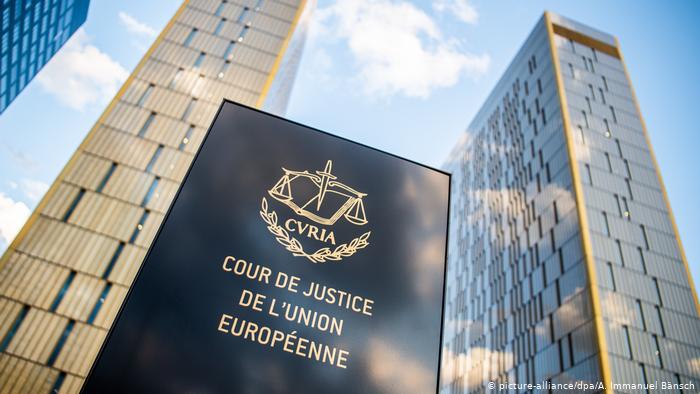The European Court of Justice has ruled that unaccompanied minors may only be sent back to their country of origin if there were "adequate reception facilities." Otherwise, the court said, they should be allowed to stay.
In a ruling on Thursday, the European Court of Justice (ECJ) in Luxembourg said member states should only be able to deport unaccompanied minors where they could ensure that relatives or an appropriate institution in the home country would receive the child.
The court ruled that such deportations — even if they did not take place until the minor reaches the age of 18 — did not sufficiently take into account the best interests of the child. As a result, the court ruled, the practice was not compatible with EU law.
"Such a minor would thus be placed in a situation of great uncertainty as to his or her legal status and his or her future," the Luxembourg judges said.
The court specifically rejected the Dutch practice of dealing with underage asylum-seekers and migrants who are not entitled to refugee protection.
For children under 15 years of age, suitable reception options in the country of origin are examined. Only if a suitable one is found will a "return decision" be issued.
However, for those over 15, Dutch authorities wait for the age of majority before returning minors to their origin country without inquiring where they will end up.
Young migrant's challenge to decision
A refugee aged 15 years and 4 months at the time filed a complaint against such a return decision. The boy said he had been born in Guinea but later lived in Sierra Leone with an aunt who had died. He then left for Europe.
The young man claimed to have been the victim of human trafficking and sexual exploitation, suffering serious psychological trauma as a result. However, Dutch officials decided he was not eligible for a fixed-term residence permit, refugee status or subsidiary protection.
His appeal was on the grounds that he did not know where his parents lived and would not be able to recognize them upon his return.
In their decision, the judges said, member states "must necessarily take into account the best interests of the child at all stages of the procedure, which entails a general and in-depth assessment of the situation of that minor being carried out."
The court ruled that deportation with no suitable reception facility would affect the individual's schooling and his connection with a foster family in the host country.
"It follows that, if such reception facilities are not available in the state of return, the minor concerned cannot be the subject of a return decision."
The court also ruled that EU countries should not distinguish between different groups of minors merely based on their age.
Latest Stories
-
Bawumia’s 8 minutes elite ball that zapped the energy of trigger happy politicians
46 minutes -
It will be a betrayal if National Cathedral saga does not feature in ORAL’s work – Ablakwa
56 minutes -
‘It’s unfortunate we had to protect the public purse from Akufo-Addo’ – Ablakwa on ORAL Team’s mission
2 hours -
Congo lawyers say Apple’s supply chain statement must be verified
2 hours -
Stampede in southwestern Nigerian city causes multiple deaths
2 hours -
Tens of thousands without water in Mayotte as curfew brought in
3 hours -
ORAL: We won’t witch-hunt, we’ll focus on transparency, not revenge – Ablakwa
3 hours -
Attempted robbery: Accused claims he carried cutlass for protection
3 hours -
Excavator operator jailed for stealing
4 hours -
African fans age-shame me for putting on some outfits – Tiwa Savage
4 hours -
Tiwa Savage criticised by female fans for stance on cheating in relationships
4 hours -
Bank of England expected to hold interest rates
4 hours -
Congo river boat sinks killing at least 22
4 hours -
Nigeria approves Shell’s $2.4 billion asset sale to Renaissance
5 hours -
Embattled Liberian speaker questioned by police over parliament fire
6 hours

